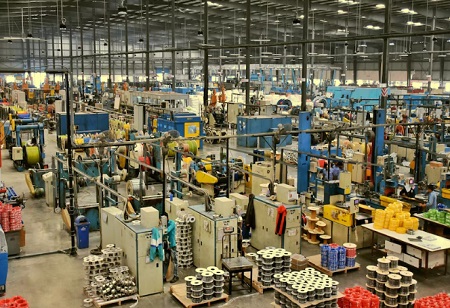
As U.S. import tariffs shake up global trade, companies are looking to India as a budget-friendly manufacturing hub. Morgan Stanley Research notes India’s massive 961 million working-age population—second only to China’s 984 million—with factory workers earning just $1 per hour compared to $5.6 in China. This cost edge is pulling in businesses like Delta Electronics, whose India chairman, Benjamin Lin, told that India’s supply chain now beats Thailand’s in cost, though it’s not yet on par with China.
South India, especially Tamil Nadu, is rolling out the red carpet for investors. Tamil Nadu’s industries minister, TRB Rajaa, said the state tailors its approach to meet companies’ needs, offering perks like a 10-year tax break for Delta Electronics, plus top-notch roads, ports, and utilities. With just 6% of India’s population, Tamil Nadu hosts 15.7% of the country’s factories, leading in electronics (40% of India’s output) and nearly half of its automotive production.
U.S. trade policy uncertainty is speeding up this shift. Lin explained, “If customers want us out of China, we move.” Apple, for instance, plans to make most of its iPhones in India, boosting local firms like Tata Electronics, which is building an iPhone plant in Hosur, Tamil Nadu—also home to Ola Electric’s huge electric scooter factory.
Also Read: IIT Madras Launches Rs 200 Crore VC Fund to Boost Deeptech Startups
Still, India faces hurdles, relying heavily on Chinese parts like microcontrollers and battery magnets. Ather Energy’s co-founder, Swapnil Jain, said reducing this dependency is critical, especially amid U.S.-China trade tensions. With low costs, a skilled workforce, and investor-friendly policies, India is fast becoming a global manufacturing star.
We use cookies to ensure you get the best experience on our website. Read more...